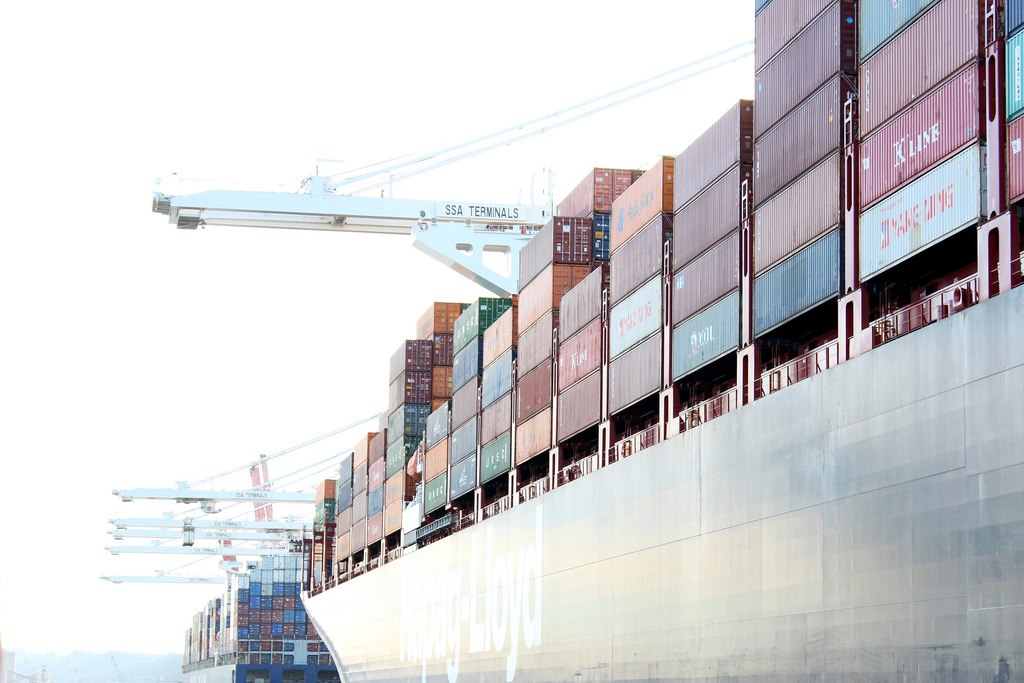“The Commonwealth as a trading block”
April 5 The Brexit vote could usher in a new trade opportunity for the Commonwealth, writes Muhammed Badamasi, 22, a Correspondent from Lagos in Nigeria, who calls for the issue to be discussed at this months’ CHOGM.
The Brexit vote could usher in a new trade opportunity for the Commonwealth, writes Muhammed Badamasi, 22, a Correspondent from Lagos in Nigeria, who calls for the issue to be discussed at this months’ CHOGM.
In June 2016, Britain conducted a referendum where British citizens decided on the fate of Britain’s continued membership in the European Union. The decision to leave the European Union is one many regarded as a leap into darkness because of the unsure territory it would transport the country into and the consequences it would have on the country.
Brexit didn’t affected just the membership of the EU; its effect would be felt in many other areas such as migration, international relations, and trade.
The European Union is an organization of 28 European countries established for reasons including the promotion of trade among the member states. Over the years, Britain has contributed immensely to trade in the EU. However, with the exit of Britain from the EU, the Commonwealth’s relevance in trade has come to the limelight again.
The Commonwealth is an organization of 52 countries spanning across various continents. Although unlike the EU, trade is not one of the objectives set out by the Commonwealth, statistics show that countless trade advantages exist in the organisation. Currently, business among Commonwealth members stands at around 600 billion pounds (US $730 billion), which is equivalent to 15 per cent of global trade, even though member states account for a third of the global population. Projections have been made that this value will surpass US $1 trillion by 2020 and reach US $2.75 trillion by 2030.
Before Britain joined the EU, its Commonwealth allies were its major partners, however, ties with the Commonwealth were greatly reduced after Britain’s alliance with Europe. Historian Ben Pimlott argued that joining Europe “constituted the most decisive step yet in the progress of severence of familial ties between Britain and its former empire… It reduced the remaining links to sentimental and cultural ones, and legal niceties.” With Britain’s June 2016 vote to exit from the EU, there is a strong chance that these ties will be mended.
The Commonwealth is an association of sovereign nations that support each other and work together toward international goals. It is a group of nations with their common heritage in language, culture, law, education and democratic traditions, among other things. These similarities are great advantages to trade.
Paul Thomas Arkwright, the British ambassador to Nigeria, commented that trade within the Commonwealth is of 20 per cent more value than trade outside the Commonwealth due to this common heritage. In fact, a Commonwealth Secretariat research paper, “The ‘Commonwealth effect’ and the process of internalisation”, showed that in the absence of trade treaties, there was a clear cost advantage in trade between Commonwealth nations, and the overhead costs of doing business were reduced by up to 15 per cent in comparison with trade outside the Commonwealth. This was attributed to the “Commonwealth effect.”
The Commonwealth effect, merged with the countless opportunities the association provides, is a largely untapped mine that heads of state should focus on during this year’s Commonwealth heads of state meeting in April. Using projections from the US Department of Agriculture’s Economic Research Service (USDAERS), it was estimated that the combined GDP of the Commonwealth would reach about $20 trillion in 2030. The average share of intra-Commonwealth trade in Commonwealth countries’ total world trade between 1995 – 2013 increased from 13 per cent to 18 per cent. Intra-Commonwealth trade in goods is also on the increase. In 2015, it was estimated at $525 billion, being dominated by Asia and Africa. Malaysia, Singapore, and India are the major exporters.
However, with the strong trade potential existing in the Commonwealth, arguments exist against the prospects of trade relations and indeed against the possibility of the association being a trade block. According to a 2013 report for the international trade centre, “conventional thinking among trade policy experts and policy makers suggests that a free trade area of the Commonwealth would be an utter impossibility for legal and political reasons”.
One such argument is the geographical dispersion of Commonwealth states. Milner (2008) calculates that the average distance between each Commonwealth country and the five major markets of Australia, Canada, India, South Africa and the UK is a huge disadvantage. According to him, distances between Commonwealth markets are consistently high. Another problem is the absence of policy instruments to promote trade among Commonwealth countries. Trade policy relations within the Commonwealth are determined by individual members’ multilateral, regional and bilateral commitments, which in an overwhelming majority of cases involve non-Commonwealth countries.
With all the advantages and disadvantages of the Commonwealth to trade, it is unclear what decisions would be reached in the 2018 Commonwealth heads of state meetings, however, one thing is clear.Trade would be one of the major issues that should be discussed in this year’s gathering.
Reach me on Twitter @itsbadmoh
Photo credit: tsmattea1 IMG_3157 via photopin (license)
…………………………………………………………………………………………………………………
About me: I am an avid reader, writer and enthusiast of African literature. I am a freelance writer and commentator on socio-political issues, and am also involved in the advocacy for good governance and leadership. Currently, I am a law student at Obafemi Awolowo University, Ile-Ife, Nigeria.
…………………………………………………………………………………………………………………
Opinions expressed in this article are those of the author and do not necessarily represent the views of the Commonwealth Youth Programme. Articles are published in a spirit of dialogue, respect and understanding. If you disagree, why not submit a response?
To learn more about becoming a Commonwealth Correspondent please visit: http://www.yourcommonwealth.org/submit-articles/
…………………………………………………………………………………………………………………






